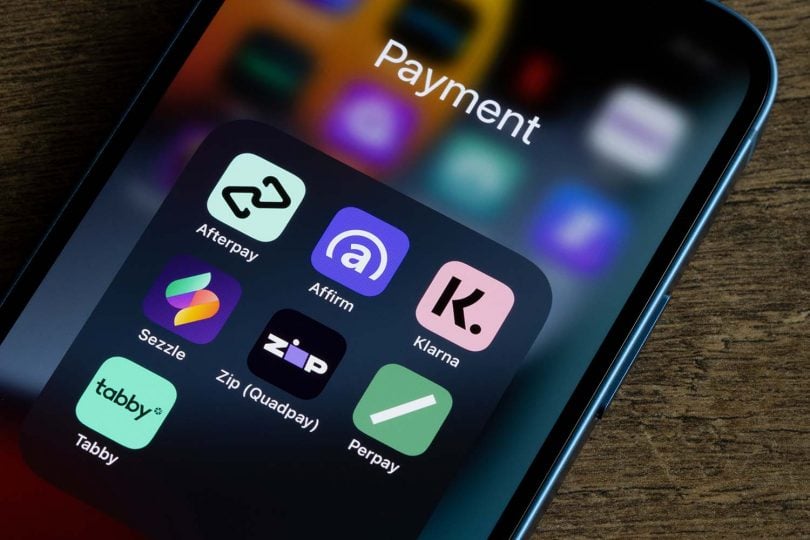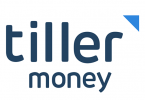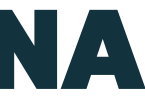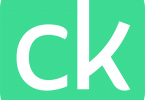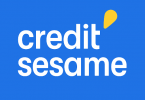Buy Now, Pay Later apps make shopping online more convenient and can ease the strain on your wallet. But which BNPL app comes out on top?
With layaways becoming a thing of the past, Buy Now, Pay Later (BNPL) apps are coming to the forefront as the go-to shopping method for many – especially those living paycheck-to-paycheck. Even credit cards are facing stiff competition from Buy Now, Pay Later (BNPL) services because of their interest-free installments.
What people don’t realize is that BNPL apps are a form of financing called a point-of-sale (POS) loan. In some cases, they may charge interest or at least high late fees depending on the BNPL app and POS loan product you use. But if you’re looking for a little leeway when making purchases, then a BNPL app may be the solution for you. So, before you dip your toes in the BNPL pool, find out which Buy Now, Pay Later app is right for you.
What to watch out for with BNPL companies
Anyone can be easily tempted to make purchases when you’re promised 0% APR and a breakdown of your payments into small installments. If you’re looking to buy a laptop for school, maybe a new mattress, or some new clothes for a special occasion, point-of-sale (POS) loans can be useful alternatives to credit cards. But only if you can afford your payments and can pay them off in a timely manner to avoid added fees and, in some cases, interest charges.
You also want to keep in mind that the ease and convenience of point-of-sale financing can lead to overspending. Because your payments are spread out over several weeks to months, the temptation to buy nonessentials, like electronics, increases. And BNPL companies know exactly what they are doing by feeding into consumers’ urges for instant gratification. So, tread with caution.
Moreover, you should be aware that some BNPL apps do not require credit checks, nor do they report to the credit bureaus. But others do. Some lenders may even run hard credit inquiries that can drop your score. And POS loans can affect your credit utilization ratio as well as the length of your credit history.
Also, beware that some BNPL apps have hidden fees, such as “convenience” fees.

Pros and cons of BNPL companies
So, let’s compare the pros and cons of a few BNPL loans:
Affirm
Affirm is a good choice for consumers who want longer-term financing. It offers BNPL loans that can range between one month to 48 months with a $17,500 limit. But beware that Affirm charges interest depending on purchase amount, length of payment term, and merchant. So, be aware that in some cases you could face interest rates as high as 30%!
On the plus side, if you manage to secure a 0% loan, you won’t have to worry about late fees. Affirm is one of the few BNPL providers that doesn’t charge late fees. However, if you are late with payments, it can affect your eligibility for future loans with Affirm. And your credit score would suffer as a result of the late payments. Affirm does not report loans with 0% APR and four biweekly installments nor will they report loans with three-month payment terms. But when the term is longer, Affirm will report the entire loan history to Experian.
| Pros | Cons |
| Purchase limit of $17,500 | Requires soft credit check |
| Offer 3, 6, or 12-month payment options | Some transactions charge interest (10%-30%) |
| Make purchases online or in-person | No physical card; only virtual |
Afterpay
Afterpay is an Australian-based company that was recently acquired by Jack Dorsey’s digital payment company, Square, for $29 billion. If you are looking for a short-term financing option with 0% interest and no credit score consequences, then Afterpay may be for you.
They don’t have a limit on how much credit you can take out. It all depends on how long you’ve been a customer and whether you’re making your payments on time. Essentially, you need to build credit with Afterpay itself. So, if you’re a new user, you’ll have to settle for purchasing smaller items until you build a healthy credit file with them.
The major selling point of Afterpay is that it doesn’t affect your credit score at all. The company doesn’t check your credit score when you apply, and they don’t report any loan information to the credit bureaus. On the other hand, Afterpay’s biggest drawback is their late fees. For each late payment, you get hit with the lesser of two options: an $8 fee or 25% of your transaction.
| Pros | Cons |
| Does not charge interest | Only offers one repayment plan option |
| Get reminders on your due payments | Each purchase is subject to approval |
| Offers steep discounts on luxury goods | Credit limit is not clearly disclosed |
| They have a dedicated tab for Black-owned businesses in their shop directory | They have late fees that can be as high as 25% of the purchase amount |
| Highlights sales plus BOGO deals |
Bread
Unlike most BNPL providers, Bread is not a direct lender. When you finance through Bread, you are actually applying for a short-term loan with Cross River Bank. If you’re looking to purchase items between $50-$1,000, Bread can help by offering an installment option called SplitPay. Much like most BNPL loans, the payments are broken down into four interest-free installments as long as you make your payments on time.
Bread also offers longer term financing that ranges from 3-36 months. These types of loans, however, are not interest-free and can have interest rates ranging from 6.99%-29.99% APR. Your interest rate depends on factors like your credit score and payment history.
In some instances, you may not be approved for the full amount of your loan. If that happens, you could be asked to pay a certain amount upfront. The rest would be financed. But if you like the freedom of making online purchases with the merchant of your choice, Bread may not be the option for you. Since you’re only able to get Bread financing through participating retailers, it can be limiting finding shops online or the particular items you are hunting for.
| Pros | Cons |
| Offers installment options from 3-36 months | Does not offer refunds on interest that has been paid for a returned item |
| 0% APR if you use SplitPay (4 installment payment) and pay it off in time | Reports to credit bureaus |
| Loan payments cannot be made with a credit card | Charges interest on certain loans |
| Difficult to find retailers on their website |
Klarna
Klarna is a Swedish BNPL company that was founded in 2005 and has grown rapidly. Klarna is now headquartered in Columbus, Ohio, boasting over 90 million customers and more than 200,000 registered retailers that serve 17 countries.
They offer customers three payment plans. The first works the same as other “pay in 4” BNPL loans. It involves four interest-free installment payments biweekly over six weeks with the first payment upfront. The other option is a “pay in 30” plan that requires no money up front, but you end up paying your principal in full 30 days later. So long as your payments are made in full, you will not be charged any interest.
And the final financing option is a long-term credit option with terms ranging from 6 to 36 months. But beware of interest rates that can run as high as 29.99% APR. Klarna also charges customers late fees of $35 for every month missed on long-term financing plans. On the interest-free installment payments, a late repayment fee of $7 may be charged to your account.
When it comes to their two interest-free options, Klarna will perform soft credit checks. But, for the long-term financing option, Klarna runs a hard check and this will show up on your credit report.
| Pros | Cons |
| Virtual card can be used at any online or in-person retailer | Each purchase is subject to Klarna approval |
| Pay full balance within 30 days and avoid interest charges | Long-term financing charges interest |
| Offers 6 to 36-month financing | Klarna can trigger a hard pull on your credit |
| Pay-later options are limited |
PayPal
The most well-known name on the list, PayPal, only recently launched its own BNPL product called “Pay in 4.” PayPal’s “Pay in 4” allows customers to make four installment payments biweekly over a six-week period. The first payment is due at purchase, and you are given a $1,500 limit. So, if you’ve got your eye on a more expensive product, you’re better off looking elsewhere.
What makes PayPal’s “Pay in 4” standout is the fact that they do not charge late fees. It also does not report to credit bureaus, so it won’t affect your score.
Moreover, PayPal doesn’t check your credit score most of the time when determining eligibility for loans. However, they will perform soft credit checks occasionally. And unlike other BNPL companies, PayPal does not have a separate app or website that allows customers to use these services online or in-store unless the merchants work with PayPal, such as Target and Best Buy.
| Pros | Cons |
| Accepted at almost all online merchants | Maximum purchase approval of $1,500 per transaction |
| Open 0% APR line quicker than you would a credit card | Not available in all 50 states yet |
Perpay
Perpay was launched in 2014. But unlike most of the apps on this list, Perpay acts as a modern-day solution to payday loans. Perpay will use your pay stubs to assess your loan limit. For some consumers, it is a huge bonus knowing your loan limit is not affected by your credit score. And credit limits are usually set between $500 and $2,500.
Unfortunately, you cannot just add whatever you like to your cart. Perpay will have to approve any items added to your cart. Once approved, they will send payment instructions by email. On top of this, Perpay will not ship your item until you have made the first installment payment, which ends up being your next payday.
Instead of breaking payments into four equal installments, Perpay breaks payments into eight installments. This makes is it easier to pay back for some users. But for others, it can lead to late or missed payments, which results in a $35 fee. On the plus side, Perpay does not submit payment history to the credit bureaus. So, your credit score won’t suffer, but you’ll still get charged hefty late fees.
| Pros | Cons |
| Uses pay stubs to assess loan limit | Spending limit between $500 and $2,500 |
| Payments are broken into 8 monthly installments | Purchases are subject to approval |
| Late fees are $35 | |
| Your item is shipped after the first installment; your next payday. |
Sezzle
Sezzle is a Minneapolis-based BNPL provider. It comes with a few benefits such as: no interest, no reporting to credit bureaus, and flexible payment due dates. It is one of the few BNPL companies that allows customers to reschedule payments. The first reschedule per purchase is free and then they charge $5 for any additional rescheduling on that purchase.
Sezzle offers both short-term financing and long-term financing through their partnership with Ally Bank. The short-term option is a six-week loan that consumers pay in biweekly installments on purchases up to $2,500. But you can pay off your loan over two months if you choose to reschedule one of your payments.
The long-term option allows consumers to finance purchases up to $40,000 with a maximum loan length of up to 60 months. If you opt for the 60-month option, your payments are broken down monthly instead of biweekly. However, you may have to pay interest for this type of loan.
And while Sezzle technically doesn’t charge late fees, they will charge you “failed payment” fees if your card was expired or had insufficient funds. The charged fee can go up to $10, but it depends on your state’s regulations.
| Pros | Cons |
| Allows customers to reschedule payments up to two weeks later | Each additional reschedule costs $5 |
| Doesn’t report to credit bureaus | Has a limited range of merchants |
| Charges “failed payment” fees |
Splitit
Splitit works in a unique way compared to other Buy Now, Pay Later providers. For one, it does not have an application process, nor does it require a credit check. So, it will not affect your credit score. But, what sets it apart from other BNPL companies is that it works off your available credit on your existing credit cards. And they do not report to any of the credit bureaus, but the credit card you use will likely report your payment activity.
When you make a purchase, Splitit makes sure you have the available credit for the purchase first. They also do not charge interest. However, you may end up making interest payments on the credit card you use should you fail to pay off your monthly balance in full.
You can also use debit cards for you purchase, but there is a limit of $400 for debit transactions. The other issue becomes that some merchants may decline the use of debit cards. Additionally, if you make late payments to your credit card your issuer will likely charge you late fees and it will negatively impact your credit score.
| Pros | Cons |
| No applications, credit checks, or registration | Must already have a Visa or Mastercard |
| Uses existing credit card limits for purchases | Does not build credit |
| No interest or late fees | Not available to AMEX or Discover card users |
| Make purchases online or in-person | Credit limits start at $500 and go up to $750 |
Zip
Formerly known as Quadpay, Zip is a BNPL service that is available internationally. Much like many of the other BNPL companies, Zip allows consumers to make purchases using four interest-free installment payments over six weeks. However, they have a limit on orders. You can only spend up to $1,500 (maximums can vary depending on retailers). Zip also does not report their loans to the credit bureaus, nor does it perform any credit checks prior to loan approval.
An added bonus with Zip is that whenever you use the app or the browser extension, you receive a virtual, one-time card that you can use in-person or online. And if you are late with a payment or your paycheck may have been delayed, Zip may move payment due dates if you contact them. But Zip’s major drawback is that they charge convenience fees of $1 per payment you make or a $4 fee for your order.
| Pros | Cons |
| No credit check required | Charges $4 fee for each loan or $1 for each payment |
| 0% APR | $7 fee for each late payment |
| Only offers a 6-week BNPL option | |
| Reports borrowers to collections |
The final word
Ultimately, there is no right or wrong answer when it comes to the best Buy Now, Pay Later app. It all depends on what works for you. So, after sifting through our list, decide which of the services aligns best with your needs and wants. And remember, as much as BNPL apps attempt to empower consumers, in many ways they take advantage of consumers’ urges for instant gratification. So, “don’t be fooled by the rocks that they got” because you may just end up struggling to pay off that rock.
Sources
10 Buy Now Pay Later Apps for Secure Shopping in 2021 | Finbold


